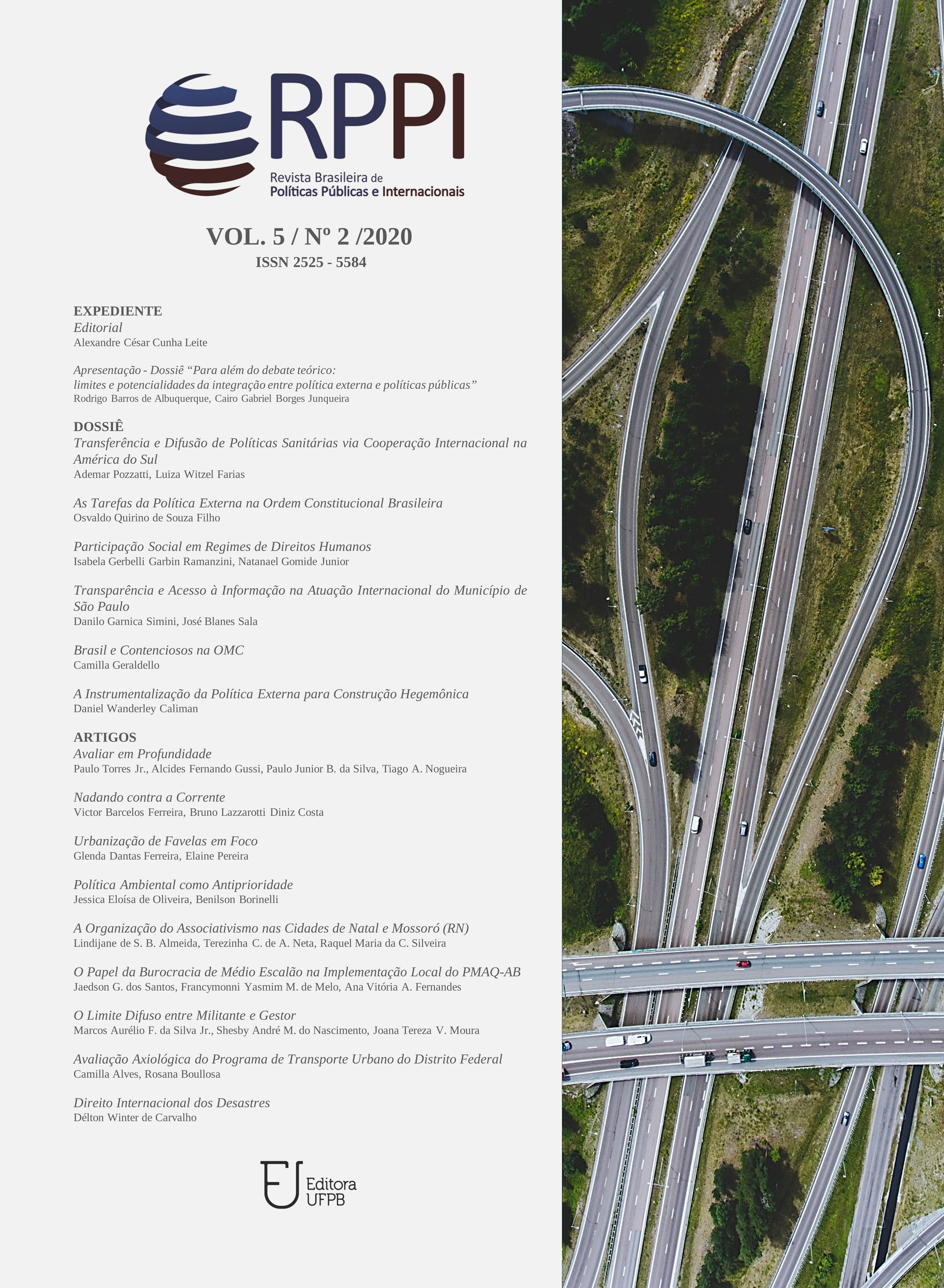Instrumentalization of Foreign Affairs for Hegemony Construction
neoliberalism, neodevelopmentalism, power blocks and historical block
DOI:
https://doi.org/10.22478/ufpb.2525-5584.2020v5n2.51722Keywords:
brazilian foreign policy, hegemony, neoliberalism, neodevelopmentalismAbstract
The paper makes use of the Foreign Policy Analysis to understand the key aspects of Brazil’s foreign affairs between 1995 and mid 2016, under Fernando Henrique Cardoso’s, Luis Inácio Lula da Silva’s and Dilma Vana Rousseff’s administrations, and its autonomy seeking models. From this comprehension, an analysis is developed through Gramsci’s and Poulantzas’ theories to express the instrumentalization of foreign policy as a mean of hegemony construction and what relation it has with the rescpective autonomy seeking models, identifying the particularities of each administration, the wider process of transition from neoliberalism to neodevelopmentalism, in the context of the array of public policies which organize the brazilian capitalism, as well as the relation with the historical blocks formation. It is concluded that the foreign policies aplied during these periods insert themselves into wider movement of hegemony dipute.
Downloads
Downloads
Published
Issue
Section
License
Autores que publicam nesta revista concordam com os seguintes termos:- Autores mantém os direitos autorais e concedem à revista o direito de primeira publicação, com o trabalho simultaneamente licenciado sob a Licença Creative Commons Attribution que permite o compartilhamento do trabalho com reconhecimento da autoria e publicação inicial nesta revista.
- Autores têm autorização para assumir contratos adicionais separadamente, para distribuição não-exclusiva da versão do trabalho publicada nesta revista (ex.: publicar em repositório institucional ou como capítulo de livro), com reconhecimento de autoria e publicação inicial nesta revista.
- Autores têm permissão e são estimulados a publicar e distribuir seu trabalho online (ex.: em repositórios institucionais ou na sua página pessoal) a qualquer ponto antes ou durante o processo editorial, já que isso pode gerar alterações produtivas, bem como aumentar o impacto e a citação do trabalho publicado (Veja O Efeito do Acesso Livre).




_.jpg)






.png)


.jpg)
_.png)
